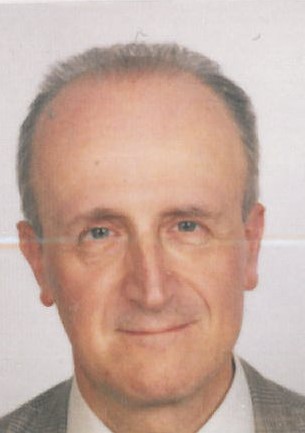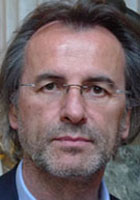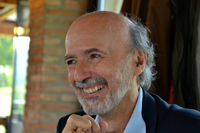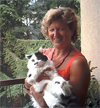Studying at the University of Verona
Here you can find information on the organisational aspects of the Programme, lecture timetables, learning activities and useful contact details for your time at the University, from enrolment to graduation.
Academic calendar
The academic calendar shows the deadlines and scheduled events that are relevant to students, teaching and technical-administrative staff of the University. Public holidays and University closures are also indicated. The academic year normally begins on 1 October each year and ends on 30 September of the following year.
Course calendar
The Academic Calendar sets out the degree programme lecture and exam timetables, as well as the relevant university closure dates..
| Period | From | To |
|---|---|---|
| Sem. IA | Sep 25, 2017 | Nov 11, 2017 |
| Sem. IB | Nov 13, 2017 | Jan 20, 2018 |
| Sem. IIA | Feb 26, 2018 | Apr 21, 2018 |
| Sem. IIB | Apr 23, 2018 | Jun 9, 2018 |
| Session | From | To |
|---|---|---|
| Sessione Invernale | Jan 22, 2018 | Feb 24, 2018 |
| Sessione Estiva | Jun 11, 2018 | Jul 28, 2018 |
| Sessione Autunnale | Aug 27, 2018 | Sep 22, 2018 |
| Sessione Straordinaria | Jan 14, 2019 | Feb 16, 2019 |
| Session | From | To |
|---|---|---|
| Sessione Estiva | Jul 16, 2018 | Jul 21, 2018 |
| Sessione Autunnale | Nov 12, 2018 | Nov 17, 2018 |
| Sessione Primaverile | Apr 1, 2019 | Apr 6, 2019 |
| Period | From | To |
|---|---|---|
| All Saints Day | Nov 1, 2017 | Nov 1, 2017 |
| Immaculate Conception | Dec 8, 2017 | Dec 8, 2017 |
| Christmas break | Dec 22, 2017 | Jan 7, 2018 |
| Easter break | Mar 30, 2018 | Apr 3, 2018 |
| Liberation Day | Apr 25, 2018 | Apr 25, 2018 |
| Labour Day | May 1, 2018 | May 1, 2018 |
| Patron Saint Day | May 21, 2018 | May 21, 2018 |
| Republic Day | Jun 2, 2018 | Jun 2, 2018 |
| Summer break | Aug 13, 2018 | Aug 18, 2018 |
Exam calendar
Exam dates and rounds are managed by the relevant Humanistic Studies Teaching and Student Services Unit.
To view all the exam sessions available, please use the Exam dashboard on ESSE3.
If you forgot your login details or have problems logging in, please contact the relevant IT HelpDesk, or check the login details recovery web page.
Should you have any doubts or questions, please check the Enrollment FAQs
Academic staff

Longo Mario
 mario.longo@univr.it
mario.longo@univr.it
 045 8028393
045 8028393
 linda.napolitano@univr.it
linda.napolitano@univr.it
 domenico.secondulfo@univr.it - domenico.secondulfo3@gmail.com
domenico.secondulfo@univr.it - domenico.secondulfo3@gmail.com
Study Plan
The Study Plan includes all modules, teaching and learning activities that each student will need to undertake during their time at the University.
Please select your Study Plan based on your enrollment year.
1° Year
| Modules | Credits | TAF | SSD |
|---|
5 course to be chosen among the followingOne course to be chosen among the following3 course to be chosen among the followingOther activitites2° Year activated in the A.Y. 2018/2019
| Modules | Credits | TAF | SSD |
|---|
2 course to be chosen among the following| Modules | Credits | TAF | SSD |
|---|
5 course to be chosen among the followingOne course to be chosen among the following3 course to be chosen among the followingOther activitites| Modules | Credits | TAF | SSD |
|---|
2 course to be chosen among the following| Modules | Credits | TAF | SSD |
|---|
Legend | Type of training activity (TTA)
TAF (Type of Educational Activity) All courses and activities are classified into different types of educational activities, indicated by a letter.
Philosophy and Theology (m) (2017/2018)
Teaching code
4S003310
Teacher
Coordinator
Credits
6
Language
Italian
Scientific Disciplinary Sector (SSD)
M-FIL/01 - THEORETICAL PHILOSOPHY
Period
Sem. IB dal Nov 13, 2017 al Jan 20, 2018.
Learning outcomes
Teaching is devoted to the confrontation between philosophy and theology as a privileged ground for the contemporary question of religious experience in general. Through the comparison with an exemplary figure and with a text we try to link the two fields of research so that the student can acquire the essential references for a stand-alone position in the field of studies. At the end of the course, the student must be able to acquire sufficient critical capacity for further research and to apply his knowledge to the areas of reference of the current debate.
Program
The exemplary figure to which this year is addressed is Dietrich Bonhoeffer, with reference to the text Creation and Fall. It is the lesson course that, with great inner involvement, held at the University of Berlin as a free teacher in 1932/33. Some course attendants insisted on the teacher to print the manuscript. Thanks to them, today's reader of Creation and Fall is almost to participate directly in the academic course held by Bonhoeffer: a university course that reaches the spiritual intensity of an extraordinary meditation on decisive pages of Scripture. The authentic interpretation of the Old Testament is authentic and profound, as it is fruitful for the developments that will be in the same author: its ethics will burst the roots in Biblical anthropology, and from this point on, it will start the idea of elaboration Non-religious concept of theological concepts.
The volume on the relationship between liberal theology and dialectical theology in the formation of Bonhoeffer will allow him to appreciate his theological proposal and at the same time to deepen the philosophical problems with which Bonhoeffer confronts himself.
Required texts:
Dietrich Bonhoeffer, Creation and Fall, Works by Dietrich Bonhoeffer 3, Queriniana, Brescia 2010.
Ferdinando Luigi Marcolungo, Dietrich Bonhoeffer between liberal theology and dialectical theology, QuiEdit, Verona 2016.
Further bibliographical references may be provided on the e-learning and lesson web site, also in view of possible personal in-depth study.
| Author | Title | Publishing house | Year | ISBN | Notes |
|---|---|---|---|---|---|
| Bonhoeffer, Dietrich, | Creazione e caduta (Edizione 2) | Queriniana, Brescia | 2010 | 978-88-399-1834-5 | Opere di Dietrich Bonhoeffer, volume 3 |
| F.L. Marcolungo | Dietrich Bonhoeffer tra teologia liberale e teologia dialettica (Edizione 1) | QuiEdit, Verona | 2016 | 9788864643991 |
Examination Methods
Didactic Methods
The teaching methods consist of traditional lectures devoted to the introduction to the figure of Dietrich Bonhoeffer and to the reading and commentary of the text Creation and Fall, aimed at transmitting basic historical-conceptual notions about philosophy of religion in general and the relationship between theology and philosophy.
Each lesson will be recorded in WMA format and, together with all the material analysed during the course, will be punctually loaded on the e-learning platform of the University with the aim of easing the study for both attending students and those who can not attend lectures.
During the academic year, an individual consultation service is also available at the teacher's study, at the times indicated on the web pages and readily updated.
Examination arrangements
The assessment of the learning outcomes of the fundamentals and the related problematic nuclei will be carried out by means of an oral test of the program carried out. This test will consist of questions to test the students' critical-argumentative ability, textual exegesis, conceptual clarity and the acquisition of an adequate philosophical vocabulary. The student is also required to submit a brief report on the subject or text of his choice concerning the program, for up to six folders (maximum 15,000 spaces including spaces), which will be discussed during the exam. The grades are expressed in thirtieths. The examination is the same for both attending students and non-attending ones.
Type D and Type F activities
Modules not yet included
Career prospects
Module/Programme news
News for students
There you will find information, resources and services useful during your time at the University (Student’s exam record, your study plan on ESSE3, Distance Learning courses, university email account, office forms, administrative procedures, etc.). You can log into MyUnivr with your GIA login details: only in this way will you be able to receive notification of all the notices from your teachers and your secretariat via email and soon also via the Univr app.
Competenze linguistiche
I crediti formativi universitari relativi alle "Ulteriori competenze linguistiche" (B1 informatizzato se seconda lingua; livello B2 completo se stessa lingua della triennale) possono essere acquisiti in una delle due seguenti modalità:
- iscrizione da parte della/o studente presso il Centro Linguistico di Ateneo (CLA ➔ https://cla.univr.it/it/test-e-certificazioni) per il sostenimento e il superamento delle prove + iscrizione, sempre da parte della/o studente, in apposita lista per la registrazione crediti e registrazione CFU (senza presenza) da parte dell’Università.
Oppure
- equipollenza di certificazioni linguistiche esterne: riconoscimento equipollenza di certificazioni linguistiche esterne (➔ https://cla.univr.it/it/servizi/riconoscimento-delle-certificazioni-linguistiche-esterne).
Gestione carriere
Linguistic training CLA
Internships
Graduation
Documents
| Title | Info File |
|---|---|
|
|
pdf, it, 99 KB, 13/10/23 |
|
|
pdf, it, 101 KB, 10/04/24 |
List of theses and work experience proposals
| theses proposals | Research area |
|---|---|
| Linguaggio e mito in Tolkien | ENGLISH LITERATURE - Critical Theory & Poetics |
| Dialettica del negativo in Meister Eckhart | HISTORY OF PHILOSOPHY - MIDDLE AGES |
| La felicità nel Medioevo | HISTORY OF PHILOSOPHY - MIDDLE AGES |
| Le figure di Eva e Maria in Ildegarda di Bingen | HISTORY OF PHILOSOPHY - MIDDLE AGES |
| IA. Una critica fenomenologica al concetto di Intelligenza Artificiale | The Human Mind and Its Complexity: Cognitive science, psychology, linguistics, philosophy of mind - Philosophy of science, epistemology and logic |
Practical information for students
Documents
| Title | Info File |
|---|---|
|
|
pdf, it, 325 KB, 02/05/23 |
|
|
pdf, it, 212 KB, 02/05/23 |
|
|
pdf, it, 131 KB, 02/05/23 |























